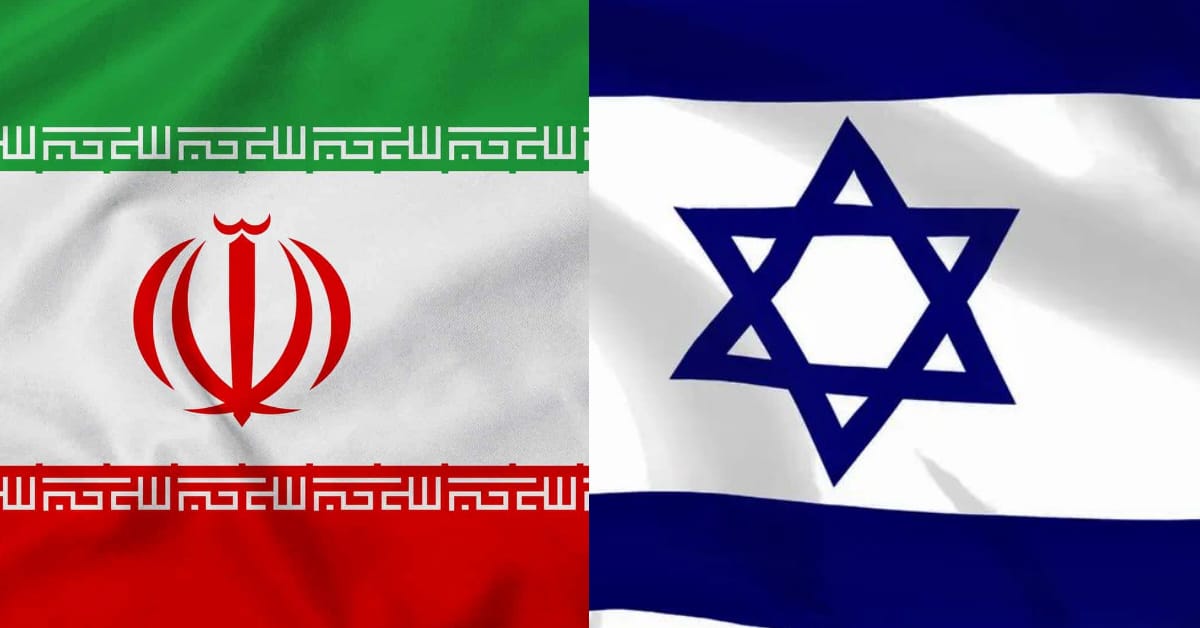Iran and Israel have a long-standing history of antagonism that can be traced back to the Iranian Revolution of 1979 and the subsequent establishment of the Islamic Republic. Iran and Israel are widely viewed as regional rivals, with vastly different political ideologies and irreconcilable differences on issues related to culture, regional politics, and religion.
One of the primary reasons behind Iran’s hostility towards Israel is its perceived role and influence in the region, particularly in the Palestinian territories. Iran’s government and many of its citizens view Israel as a colonialist, occupying force that has continually oppressed the Palestinian people for nearly a century. Supporting the Palestinian cause has been a fundamental pillar of Iran’s foreign policy, and it has used its diplomatic and military ties to anti-Israel groups like Hamas and Hezbollah to further this aim.
Moreover, a significant portion of Iran’s population is vehemently opposed to Israel because of religious reasons. Iran is an Islamic republic and has positioned itself as the champion of Muslim causes around the world. This self-proclaimed role has allowed Iran to present itself as the primary defender of Islam against western hegemony and oppression. As a result, Israel’s mostly-Jewish population and incorporation of Judeo-Christian values are in many ways perceived as an affront to Islamic beliefs.
Another reason behind Iran’s animosity towards Israel is Iran’s own regional ambitions. Dedicated to becoming a regional power, Iran seeks influence and dominance across the Middle East without rivals. The presence of Israel is seen as an obstacle to this cause, with the Israeli government often aligned with the United States, a primary adversary of Iran. Considering these factors, Iran’s leadership believes that Israel’s regional position and influence are detrimental to Iran’s own regional interests, serving as a barrier to Iranian political and economic growth and influence.
Additionally, the two countries are separated by a significant ideological chasm. While Israel espouses secularism and Western-style democracy, Iran’s rulers are Islamic theocrats, with direct influences from its Shia Muslim clerical elite. As such, their core values are incomparable, and both nations’ religious and ideological differences fuel their mutual animosity.
Moreover, Iran’s leadership sees Israel, with its advanced military capabilities, as a direct threat to Iran’s own sovereignty and security. The two countries have been involved in a covert war, including attacks on one another’s facilities and targeted assassinations. Iran has publicly and repeatedly expressed its intent to wipe Israel off the map and has continued to develop ballistic missiles that could be used to deliver nuclear payloads. In contrast, Israel views Iran’s development of nuclear weapons as an existential threat, with Israeli leaders repeatedly stating that they will not allow Iran to develop nuclear weapons at any cost.
Finally, as two countries with vastly different political ideologies, the United States has been caught in the middle of the conflict between these regional rivals. Iran’s leadership has long claimed that the US provides Israel with financial and military assistance, allowing Israel to continue its regime in the Palestinian territories. Additionally, the US’s continued presence in the region serves as a threat to Iran’s political ambitions, and the two nations have been involved in political and military conflicts, including economic sanctions, in response to what they perceive as the other’s aggression.
It is evident that the longstanding hostility between Iran and Israel is rooted in a complex and multilayered history of geopolitical, economic, and religious differences. The two sides are likely to continue their precarious relationship and foster distrust and animosity. Unless both sides initiate a dialogue aimed at peaceful coexistence, the stalemate between these two nations will continue.
The recent flare-up of violence between Israel and Hamas, a Palestinian group that controls the Gaza Strip, has once again underscored the long-standing hostility between the two sides, with Iran caught in the middle as a key supporter of Hamas. On May 10, 2021, Hamas launched a barrage of rockets into Israeli cities, killing more than 10 civilians and injuring scores of others. In response, the Israeli military launched a counter-attack targeting Hamas’s military infrastructure in Gaza, leading to a full-on conflict between the two sides. With Hamas getting stronger over the years and Iran providing weapons as well as funds to the militant group, the Iranian support for Hamas has become a critical factor behind the ongoing violence.
Hamas, founded in 1987, is an Islamist group that emerged out of the Palestinian branch of the Muslim Brotherhood. Dedicated to the liberation of Palestine from Israel’s control, Hamas has been designated as a terrorist group by multiple countries, including the United States, Canada, and the European Union. The group has been involved in numerous conflicts with Israel over the years, including three wars (in 2008, 2012, and 2014). Despite the UN Security Council’s unanimous agreement to condemn Hamas’s attacks on Israel, the group continues to receive significant support from Iran.
One of the primary reasons behind Iranian support for Hamas is related to their common enemy in the region. Iran views Israel as its primary adversary and seeks regional dominance without rivals. Hamas, on the other hand, wants to liberate Palestine from Israeli control. As such, both Iran and Hamas have a shared goal of weakening Israel and preventing its political and economic growth in the region.
As a Shia-majority nation, Iran also has an interest in supporting Sunni groups like Hamas. Although Hamas is not explicitly a Sunni group, its ideology has been influenced by the Muslim Brotherhood, a Sunni organization. Supporting Sunni groups like Hamas helps Iran’s ambition to position itself as the leader of the Muslim world, a role that it has repeatedly claimed for itself. Thus, Iran’s support for Hamas is not just ideological but has practical implications for Iran’s regional ambitions.
To further their support for Hamas, Iran provides the militant group with weapons, including rockets, missiles, and assault rifles, as well as training and funding. Hamas’s weapons arsenal has grown significantly in recent years, with many of the rockets used in the current conflict being of Iranian origin. Iran’s funding of Hamas’s operations, including their military wing, has also allowed the group to improve its infrastructure and strengthen its position in Gaza.
It is worth noting that Iran’s support for Hamas is not without risks. The recent Israel-Hamas conflict has highlighted the dangers of Iran’s support for Hamas, as it has increased the possibility of direct military confrontation between Israel and Iran. Israel has repeatedly stated that it will not tolerate Iran’s efforts to arm and support Hamas and has even accused Iran of providing missile technology to Hamas that can evade Israeli defenses. Iran’s involvement has also attracted international attention, including from the United States, which has expressed its support for Israel’s right to defend itself.
The current Israel-Hamas conflict is not just about the centuries-old animosity between the two sides but has been fuelled by external actors like Iran. By providing crucial support to Hamas, Iran has amplified the already-tense situation, leading to a catastrophic loss of life on both sides. Furthermore, the ongoing conflict has the potential to spiral into an all-out war, leading to an unprecedented humanitarian crisis in the region.
In conclusion, the recent Israel-Hamas conflict has underscored the regional tensions in the Middle East, with Iran’s support for Hamas as a critical factor behind the ongoing violence. Iran’s common enemy with Hamas, Israel, has led to significant support for the Palestinian militant group, including weapons, funding, and training. While Iranian support for Hamas has proved beneficial to the group’s modernization and strengthening, it has triggered regional tensions, leading to a potential escalation of the conflict between Iran and Israel. Given the catastrophic consequences of an all-out war, a peaceful resolution of the Israeli-Palestinian conflict is essential to the security and stability of the entire region.
____________________
Dr Brian Reuben is the Executive Chairman of the Sixteenth Council.

